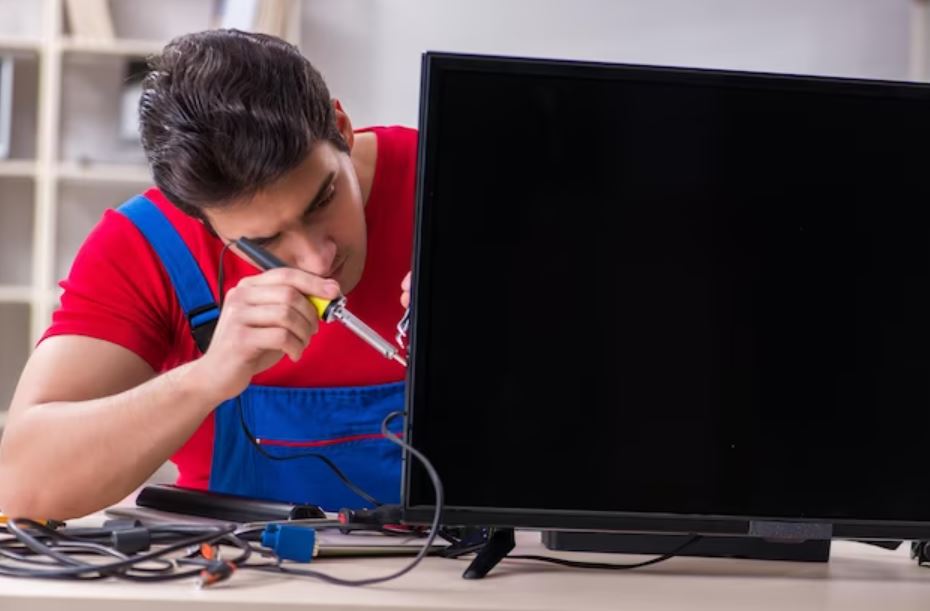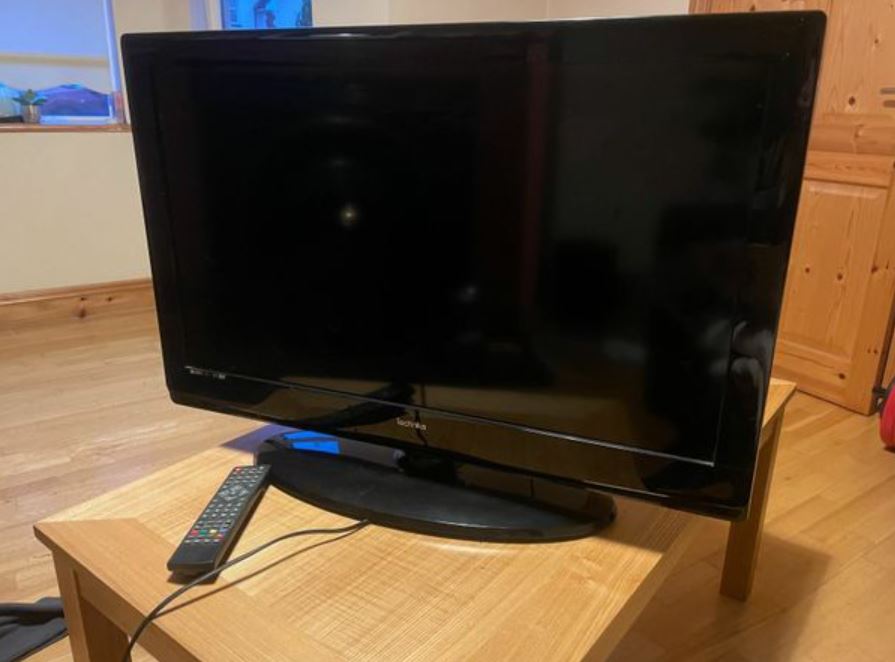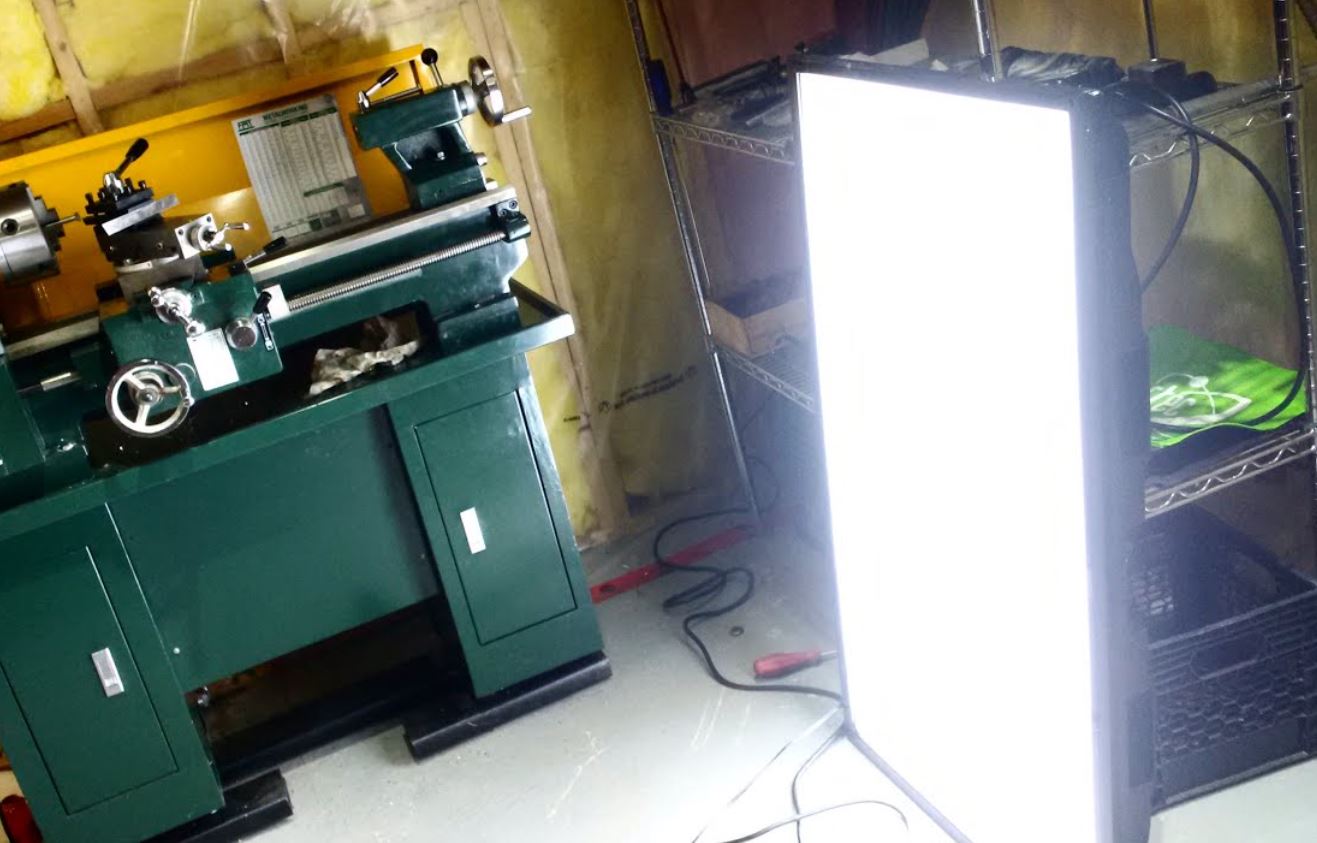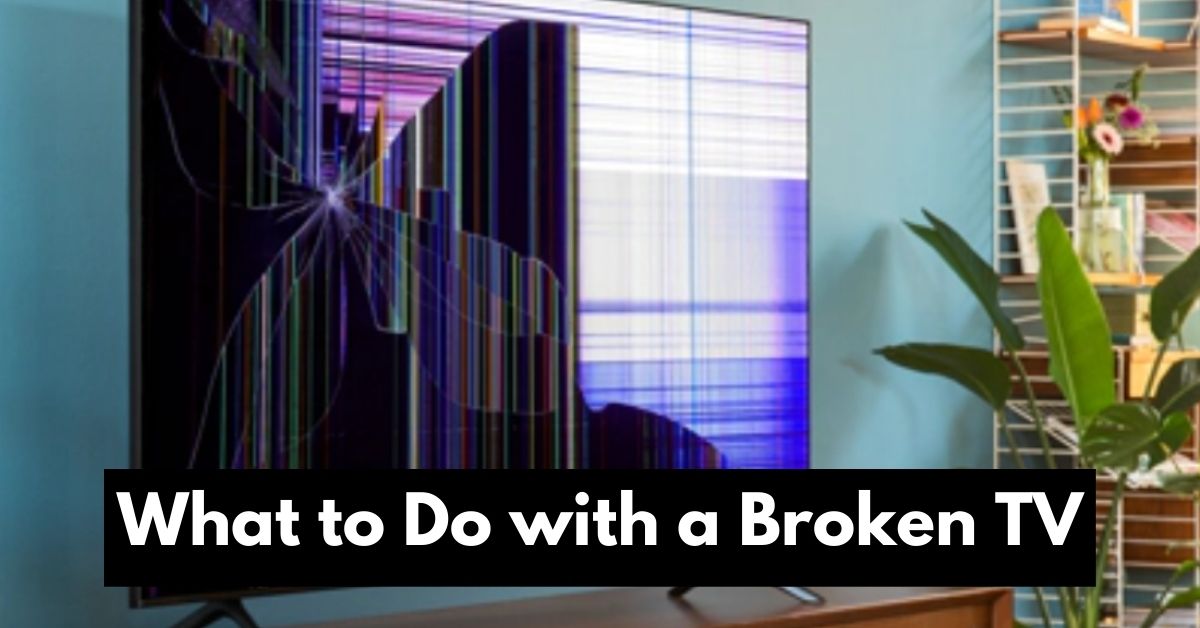As technology advances and electronics become more ubiquitous, the number of broken TVs is on the rise. Unfortunately, disposing of these broken TVs can have a negative impact on both the environment and your wallet. In this article, we’ll explore the various options for dealing with a broken TV, including repairing, donating, selling, recycling, repurposing, and disposing of it responsibly. By the end of this guide, you’ll be equipped with the knowledge to make an informed decision about what to do with your broken TV.
What to Do with Broken TV?
There are various things you can do with your broken TV. Either you can repair it, donate it, sell it, dispose of it, and many more. We have covered everything you need to know. Let’s get started.
Repairing a Broken TV

Is it worth repairing a broken TV?
The decision to repair a broken TV depends on a few factors, such as the cost of the repair versus the cost of a new TV, the age of the TV, and the severity of the issue. If the repair cost is less than the cost of a new TV and the TV is relatively new, it may be worth repairing. However, if the TV is older and the repair cost is high, it may be more cost-effective to replace it.
Common issues that can be fixed
Some common issues that can be fixed include a cracked or damaged screen, a malfunctioning power supply, a faulty speaker or audio output, and software issues such as freezing or crashing. However, some issues such as a damaged internal circuit board may be more difficult or costly to repair.
Where to take broken tv for a repair?
When looking for a reliable repair service, it’s important to do your research and choose a reputable provider. Look for reviews or referrals from friends and family, and make sure the repair service is licensed and insured. You may also want to consider the cost and warranty offered by the repair service, as well as their expertise in repairing your specific brand and model of TV.
Donating a Broken TV
Donating a broken TV to charity is a great way to dispose of it in an environmentally friendly way while also giving back to the community. Here are some tips on how to donate a broken TV:
- Finding a charity that accepts broken TVs: Not all charities accept broken TVs, so it’s important to do your research and find a charity that does. Some charities may use broken TVs for parts or repairs, while others may recycle them.
- Benefits of donating a broken TV: Donating a broken TV can have several benefits, such as reducing waste in landfills, helping others in need, and supporting charitable organizations.
- Preparing a broken TV for donation: Before donating a broken TV, it’s important to prepare it properly. This may include removing any personal information, packing it securely, and labeling it as “broken” to avoid any confusion.
Selling a Broken TV

Selling a broken TV can be a good option if you are unable to repair it or donate it to charity. Here are some tips on how to sell a broken TV:
- Places to sell a broken TV: There are several places to sell a broken TV, including online marketplaces such as eBay or Craigslist, as well as local electronics stores that buy broken TVs for parts.
- How to determine the value of a broken TV: The value of a broken TV depends on several factors, including the brand, model, and nature of the damage. You can research the value of similar broken TVs online or consult with a repair specialist to get an estimate of the value.
- Tips for selling a broken TV online: When selling a broken TV online, it’s important to be transparent about the damage and include clear photos of the TV. You should also accurately describe the condition of the TV and any other relevant information, such as the age and model number.
Recycling a Broken TV
Recycling a broken TV is important for both environmental and safety reasons. Here are some tips on how to properly recycle a broken TV:
- The importance of recycling electronics: Electronics contain hazardous materials that can harm the environment if not disposed of properly. Recycling helps to ensure that these materials are safely removed and reused.
- Finding a reputable e-waste recycler: Not all e-waste recyclers are created equal, so it’s important to find a reputable one. Look for a recycler that is certified by organizations such as e-Stewards or R2, which set standards for responsible e-waste recycling.
- How to properly recycle a broken TV: When recycling a broken TV, it’s important to follow proper procedures. This may include removing any personal information, disconnecting the TV from the power source, and preparing it for transport to the recycling facility.
Some recycling facilities may charge a fee for recycling a broken TV, so it’s important to check ahead of time. By properly recycling a broken TV, you can help protect the environment and ensure that hazardous materials are disposed of safely.
Repurposing a Broken TV

Repurposing a broken TV can be a fun and creative way to give new life to an old piece of technology. Here are some ideas for repurposing a broken TV:
- Creative ways to repurpose a broken TV: There are many creative ways to repurpose a broken TV, such as turning it into a fish tank, a bookshelf, or even a pet bed. The possibilities are endless, so let your imagination run wild!
- DIY projects for broken TVs: If you’re handy with tools, there are many DIY projects you can undertake with a broken TV. For example, you can use the parts to build a custom arcade machine or convert it into a smart mirror or digital photo frame.
- Ideas for upcycling TV parts: Even if the TV itself can’t be repurposed, there are still many ways to upcycle its parts. For example, the screen can be used as a privacy shield for your computer monitor, or the speakers can be salvaged for use in a home theater system.
You may also like – How to mount a TV on the wall
Disposing of a Broken TV
Disposing of a broken TV can be tricky, and it’s important to do it properly. The following points should be kept in mind:
- Why you should not throw a TV in the trash: TVs contain hazardous materials such as lead and mercury that can harm the environment if not disposed of properly. Additionally, some states have laws prohibiting the disposal of electronics in landfills.
- How to properly dispose of a broken TV: There are several ways to properly dispose of a broken TV. You can donate it to a charity, sell it for parts, recycle it, or have it professionally disposed of.
- Laws and regulations regarding TV disposal: Many states have laws and regulations governing the disposal of electronics. Some require that TVs be recycled or disposed of at designated facilities, while others prohibit them from being disposed of in landfills.
It’s important to do your research and follow proper procedures when disposing of a broken TV. By doing so, you can help protect the environment and ensure that hazardous materials are disposed of safely.
Conclusion
Dealing with a broken TV can be a hassle, but there are many options available for handling it responsibly. Repairing, donating, selling, recycling, or repurposing a broken TV are all viable options, depending on your situation and preferences. Making an informed decision about what to do with your broken TV can not only help you save money and avoid contributing to e-waste but also potentially benefit others in need.
FAQs
1. What is the average lifespan of a TV?
The average lifespan of a TV varies depending on the type and usage, but most modern TVs are designed to last between 7 to 10 years.
2. How can I prevent my TV from breaking?
To prevent your TV from breaking, it’s important to handle it with care and avoid exposing it to extreme temperatures or moisture. Regularly cleaning the screen and ensuring proper ventilation can also help prolong its lifespan.
3. Is it dangerous to dispose of a TV in the trash?
Yes, disposing of a TV in the trash can be dangerous as it contains hazardous materials such as lead and mercury that can harm the environment if not disposed of properly. It’s important to follow proper procedures for TV disposal, such as donating, selling, recycling, or having it professionally disposed of.

